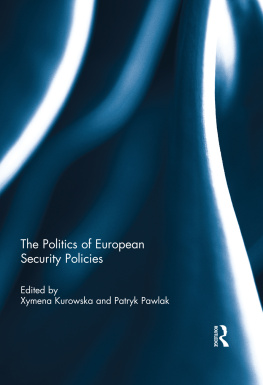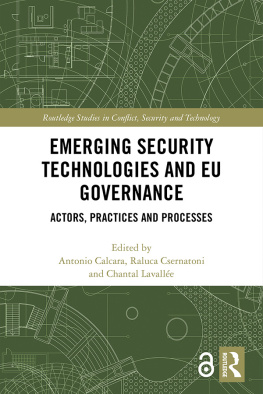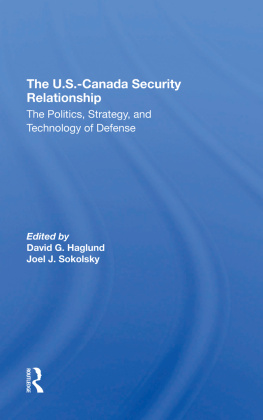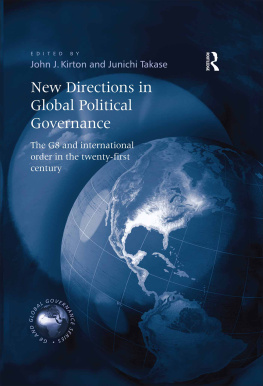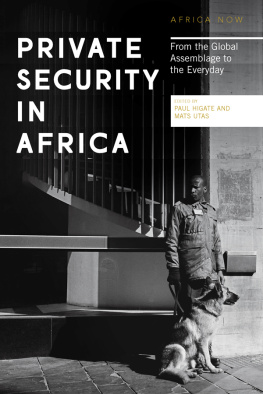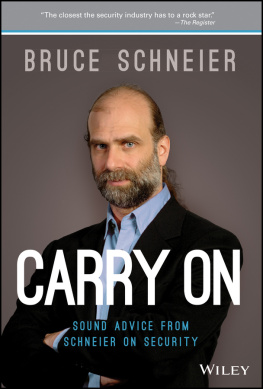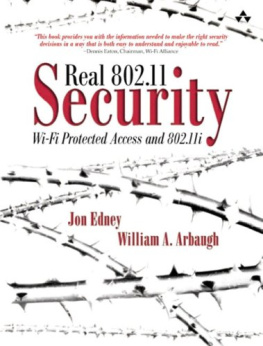Security, Technology and Global Politics
This book analyses some of the key problems explored in Paul Virilios theorising on war and security.
Paul Virilio has developed a provocative series of writings on how modern societies have shaped the acceleration of military/security technologies and how technologies of security and acceleration have transformed society, economy and politics. His examination of the connections between geopolitics, war, speed, technology and control are viewed as some of the most challenging and disturbing interventions on the politics of security in the twenty-first century, interventions that help us understand a world that confronts problems that increasingly emerge from the desire to make life safer, faster, networked and more efficient.
Security, Technology and Global Politics examines some of the key concepts and concerns in Virilios writings on security, society and technology: endocolonization, fear and the war on terror; cities and panic; cinema and war; ecological security and integral accidents; universities and ideas of progress. Critics often point to an apocalyptic or fatalistic element to Virilios writings on global politics, but this book challenges this apocalyptic reading of Virilios work, suggesting that while he doesnt provide us with easy solutions to the problems we face the political force in Virilios work comes from the questions he leaves us with about speed, security and global politics in times of crisis, terror and fear.
This book will be of interest to students of critical security studies, political theory, sociology, political geography, cultural studies and IR in general.
Mark Lacy is Lecturer in the Department of Politics and International Relations, Lancaster University, UK, and author or editor of three books.
PRIO New Security Studies
Series Editor: J. Peter Burgess, PRIO, Oslo
The aim of this book series is to gather state-of-the-art theoretical reflexion and empirical research into a core set of volumes that respond vigorously and dynamically to the new challenges to security scholarship.
The Geopolitics of American Insecurity
Terror, power and foreign policy
Edited by Franois Debrix and Mark Lacy
Security, Risk and the Biometric State
Governing borders and bodies
Benjamin J. Muller
Security and Global Governmentality
Globalization, governance and the state
Edited by Miguel de Larrinaga and Marc G. Doucet
Critical Perspectives on Human Security
Rethinking emancipation and power in international relations
Edited by David Chandler and Nik Hynek
Securitization Theory
How security problems emerge and dissolve
Edited by Thierry Balzacq
Feminist Security Studies
A narrative approach
Annick T. R. Wibben
The Ethical Subject of Security
Geopolitical reason and the threat against Europe
J. Peter Burgess
Politics of Catastrophe
Genealogies of the unknown
Claudia Aradau and Rens van Munster
Security, the Environment and Emancipation
Contestation over environmental change
Matt McDonald
Securitization, Accountability and Risk Management
Transforming the public security domain
Edited by Karin Svedberg Helgesson and Ulrika Mrth
Commercialising Security
Political consequences for European military operations
Edited by Anna Leander
Transnational Companies and Security Governance
Hybrid practices in a postcolonial world
Jana Hnke
Citizenship and Security
The constitution of political being
Edited by Xavier Guillaume and Jef Huysmans
Security, Emancipation and the Politics of Health
A new theoretical perspective
Joo Nunes
Security, Technology and Global Politics
Thinking with Virilio
Mark Lacy
Security, Technology and Global Politics
Thinking with Virilio
Mark Lacy
First published 2014
by Routledge
2 Park Square, Milton Park, Abingdon, Oxon OX14 4RN
and by Routledge
711 Third Avenue, New York, NY 10017
Routledge is an imprint of the Taylor & Francis Group, an informa business
2014 Mark Lacy
The right of Mark Lacy to be identified as author of this work has been asserted by him in accordance with sections 77 and 78 of the Copyright, Designs and Patents Act 1988.
All rights reserved. No part of this book may be reprinted or reproduced or utilised in any form or by any electronic, mechanical, or other means, now known or hereafter invented, including photocopying and recording, or in any information storage or retrieval system, without permission in writing from the publishers.
Trademark notice: Product or corporate names may be trademarks or registered trademarks, and are used only for identification and explanation without intent to infringe.
British Library Cataloguing in Publication Data
A catalogue record for this book is available from the British Library.
Library of Congress Cataloging-in-Publication Data
Lacy, Mark J.
Security, technology and global politics : thinking with Virilio / Mark Lacy.
pages cm. (PRIO new security studies)
Includes bibliographical references and index.
1. Virilio, Paul. 2. Social sciences Philosophy. 3. War Social aspects.
4. Security, International Social aspects. 5. Technology Social aspects.
6. Globalization Social aspects. I. Title.
HM479.V57.L34 2014
303.482dc23 |
2013033352 |
ISBN: 978-0-415-57604-8 (hbk)
ISBN: 978-0-203-70889-7 (ebk)
Typeset in Times New Roman
by HWA Text and Data Management, London
An incisive text that provides a timely contribution to the relevance of Paul Virilios work. More than simply providing a generic exegesis of Virilios thought on the contemporary issues of security, technology and catastrophe, Lacy encourages us to think through Virilios corpus such that we can rethink with and yet beyond his intellectual positions.
Brad Evans, University of Bristol, UK
Mark Lacy presents a cogent and comprehensive assessment of Paul Virilios intellectual interventions as a critical theorist of contemporary everyday life. This study is the best and most up-to-date analysis of his provocative insights into armed conflict, globalization, information technology, urbanization and consumer society. Security, Technology and Global Politics clearly makes an indispensable contribution by highlighting the significance of Virilios contributions to security studies, political sociology and international affairs before and after the global war on terrorism.
Timothy W. Luke, Virginia Polytechnic Institute and State University, USA
This is not a book for the faint of heart or dull of brain. Paul Virilio, the most corrosive critic of the twentieth century, has become, by dint of intellect, clarity of vision, and relentless output, the most prophetic of the twenty-first. Mark Lacy skirts the polemics and poetics of Virilio to discover a piercing analysis of the propaganda of progress and administration of fear that define our times. Virilio has found in Lacy an interpreter worthy of his immense oeuvre: not an amanuensis but a gimlet-eyed theorist who cuts to the core of a truly revelatory critique of modernity.



